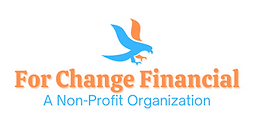
In today's fast-paced world, financial pressures can mount quickly, leaving many individuals overwhelmed by debt. To combat this growing problem, an increasing number of people are turning to debt consolidation as a lifeline. While debt consolidation offers the promise of relief and simplicity, it's crucial to understand the potential negative consequences that can arise from this approach.
What is Debt Consolidation?
Debt consolidation is a process where individuals merge multiple debts into a single loan or credit line, often with lower interest rates and extended repayment periods. This strategy appeals to many because it simplifies their financial obligations, replacing numerous monthly payments with just one.
Debt consolidation is often marketed as a way to regain control over one's finances. The idea of a single monthly payment, reduced interest rates, and the promise of getting out of debt faster can be incredibly enticing. Moreover, debt consolidation companies often boast about their ability to negotiate with creditors and improve credit scores, further fueling the appeal.
The Downside of Debt Consolidation
While debt consolidation might seem like the perfect solution, it's crucial to weigh the potential downsides before diving in:
1. Temptation to Accumulate More Debt
Consolidating debt can give individuals a false sense of financial security. Freed from the burden of multiple payments, some people may be tempted to take on new debt, exacerbating their financial struggles in the long run.
2. Prolonged Debt Repayment
While lower interest rates and extended repayment terms can seem beneficial initially, they may ultimately result in a longer debt repayment period. This extended timeline means individuals could end up paying more interest over time, despite the lower monthly payment.
3. Hidden Fees and Costs
Debt consolidation often involves fees and additional costs, such as origination fees, balance transfer fees, or closing costs. These charges can eat into the perceived savings and add to the overall debt burden.
4. Damaged Credit Score
Although debt consolidation companies claim to improve credit scores, the process itself can temporarily harm creditworthiness. Closing multiple credit accounts and opening a new one can negatively impact credit scores initially, potentially limiting access to credit in the future.
5. Lack of Financial Education
Debt consolidation may provide immediate relief, but it often fails to address the underlying issues that caused the debt in the first place. Without proper financial education and budgeting skills, individuals may fall back into the same patterns of overspending and accumulating debt.
While debt consolidation can be a viable option for some, it is vital to approach it cautiously and with a thorough understanding of its potential drawbacks. Additionally, exploring alternative debt management strategies, such as debt counseling, budgeting, and lifestyle adjustments, can provide a more comprehensive and sustainable path to financial freedom.
Disclosure: For Change Financial only recommends products we would use ourselves. All opinions expressed here are our own. This page may contain affiliate links and we may earn a small commission, at no extra cost to you. Read our full privacy policy on our website.

Comments